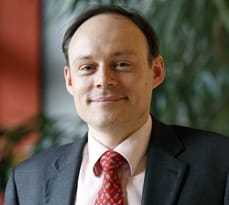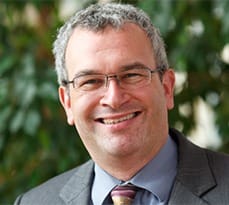Energy policy debates usually revolve around science and technology, but a new book co-edited by Michael Pollitt and David Reiner of Cambridge Judge Business School takes a multidisciplinary approach based in the social sciences and humanities.
Discussions of energy policy often tend to drift into debate about how technological solutions advanced by scientists meets resistance in the form of political complexity. A new book co-edited by Professor Michael Pollitt and Dr David Reiner of Cambridge Judge Business School instead adopts a multidisciplinary approach to energy policy – drawing on disciplines as diverse as anthropology, theology, history and the humanities.

The book just published by Cambridge University Press – In Search of Good Energy Policy – is the culmination of a four-year Energy@Cambridge project that brought together 20 academics from 11 University of Cambridge departments, and also involved researchers from other universities and centres. There are 40 contributing authors to the book.
“We wanted to hear from anthropologists and lawyers and others in a multidisciplinary approach,” Michael Pollitt, Professor of Business Economics at Cambridge Judge, told a 5 June Cambridge seminar about the new book, which was part of the CRASSH (Centre for Research in the Arts, Social Sciences and Humanities) series of lectures at the University of Cambridge. “This contrasts to a transdisciplinary approach where it’s all mixed together, which often means that each element may not be considered seriously.”
The 398-page book argues that while they are important, science and technology need to be combined with other approaches “because many people are, quite rightly, not fully convinced by scientific arguments in the way that scientists assume they can be or should be.” Chapters include reviews of individual disciplines, case studies from the perspective of the different disciplines, and multi-disciplinary case studies.

Dr David Reiner, University Senior Lecturer at Cambridge Judge, told the seminar that political science as a discipline has not engaged much in energy – but there is in fact plenty that political science can offer in areas often neglected by economists or others involved in energy policy. Sometimes, energy rises up the agenda in major journals, driven either by fluctuating oil prices (most dramatically in the Oil Crises of the 1970s) or technological breakthroughs such as the rise of nuclear power on the wider geopolitical agenda.
In the book, David also discusses the role that carbon capture and storage technologies can play in combating climate change, and steps taken by traditional oil and gas firms to shift to renewable energy sources and away from fossil fuels. While some initiatives have received lots of media coverage, these are exceptions as the overall shift away from fossil fuels by big energy firms is “still marginal at best”.
The book is also edited by University of Cambridge members Dr Jonathan Chaplin of the Faculty of Divinity, Dr Paul Warde of the Faculty of History, and Dr Marc Ozawa of the Energy Policy Research Group, who moderated the seminar. Professor Michael Pollitt and Dr David Reiner are Assistant Directors of the Energy Policy Research Group.
At the seminar, Dr Jonathan Chaplin, former Director of the Kirby Laing Institute for Christian Ethics in Cambridge, said that “people may be surprised to hear about energy policy from a theologian” – but in fact, religious leaders have had a lot to say about energy, including a call by Pope Francis for “ecological conversion” ahead of the 2015 United Nations Climate Change Conference in Paris. He added that while many religious documents may be critical of science and technology, that hasn’t stopped religious leaders approvingly citing the consensus scientific view on climate change.
Professor Victor OK Li of the University of Hong Kong discussed his research comparing efforts to fight air pollution in London between 1950 and 1966, and in Beijing between 2000 and 2016. His conclusion: while London was successful in reducing its terrible smog, there was significant improvement in Beijing only around the time of the 2008 Summer Olympics as factories closed and cars were curtailed. He notes in the book that while local authorities were important in implementing cleaner air policies in the UK, local authorities in China “tend to prioritise economic growth” – and about one-third of Beijing’s air pollution is not locally generated.
Other speakers at the seminar include Dr Charlotte Johnson from University College London (on anthropology), Dr Jim Platts from the Institute for Manufacturing at Cambridge, Dr Leslie-Anne Duvic-Paoli from Kings College London presenting her disciplinary case taking a legal perspective on the Aarhus Convention, and Tim Reilly from the Scott Polar Research Institute on the interdisciplinary case of gas pipelines.


